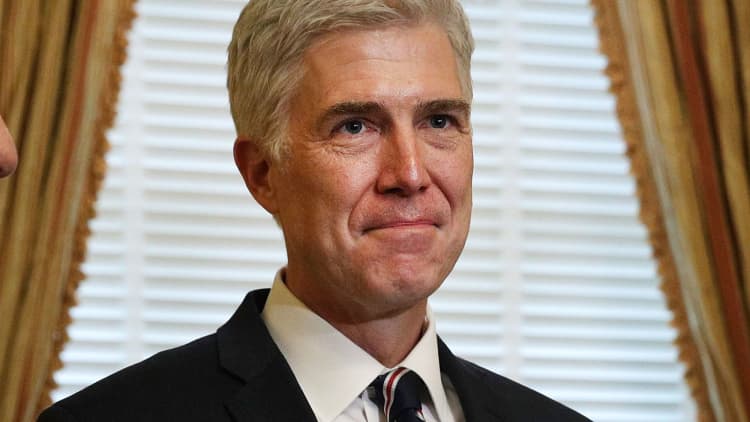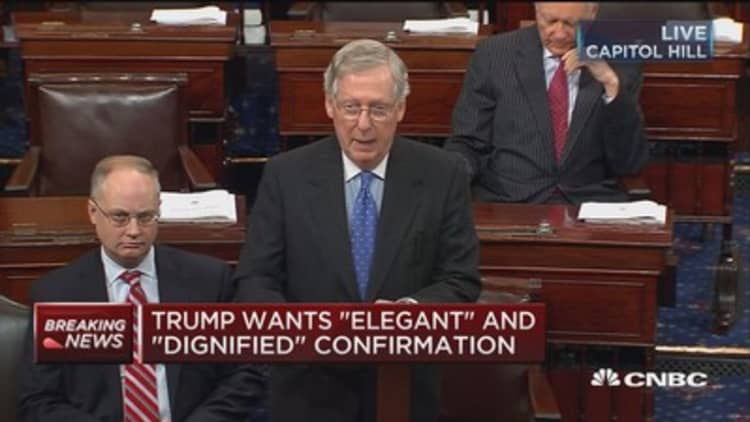
More rapidly than anyone expected, Washington is staggering toward a state of total partisan war.
Democrats boycotted committee hearings for three of President Donald Trump's Cabinet nominees on Wednesday. Republicans advanced two of them, Tom Price for Health and Human Services and Steven Mnuchin for Treasury, to the floor anyway as Senate Finance Committee Chairman Orrin Hatch declared that Democrats "should be ashamed."
Both sides began sharpening their weapons for the battle over the president's Supreme Court pick, Neil Gorsuch. After Democratic senators made clear Republicans would have to overcome a filibuster to win Gorsuch's confirmation, Trump told reporters that Republican leader Mitch McConnell should "go nuclear" and eliminate that barrier if necessary.
In some ways, this simply continues hostilities that have roiled the capital with increasing intensity for decades. Democrats began the year aggrieved over the treatment of both President Barack Obama and Hillary Clinton and disdainful of Trump.
Yet the ongoing level of rancor has sharply escalated less than two weeks into the new administration. That partly resulted from the president's executive order on immigration, which immediately generated mass protests in major cities. Those protests heightened pressure on Democratic elected officials who had already themselves opposed the order.
Several other factors added fuel to the fire, from Trump's combative inaugural address, to his lacerating tweets, to defiant statements by chief White House strategist Steve Bannon. Questions about the competence of the relatively inexperienced White House team have encouraged Trump's Democratic adversaries while rattling his Republican allies.
Trump remains likely to win confirmation of most, if not all, of his Cabinet picks. Rex Tillerson won confirmation as secretary of State Wednesday with four Democratic votes. At the same time, Betsy DeVos, his choice to be secretary of Education, suddenly seemed in danger on Wednesday after two Republican senators, Susan Collins of Maine and Lisa Murkowski of Alaska, announced their opposition.
But the emerging Democratic strategy of maximum resistance reduces the new president's margin for error and creates new obstacles to his agenda. Democrats have the power to slow down the final assembly of Trump's team, which matters because the career officials filling government agencies he wants to transform are not natural allies in the interim. Delay can also imperil parts of the new president's crowded legislative agenda — including the parts most valued by American business such as tax cuts.
At the outset of the administration, Senate Democratic Leader Chuck Schumer had vowed to cooperate with Trump on shared priorities, such as a new infrastructure plan. But the brutal crossfire that has broken out so swiftly has limited Schumer's room to maneuver.
The most combative Democrats hope to sustain their own popular version of the tea party rebellion early in Obama's term that eventually helped Republicans win back control of both houses of Congress. There will be casualties whether or not they succeed.



